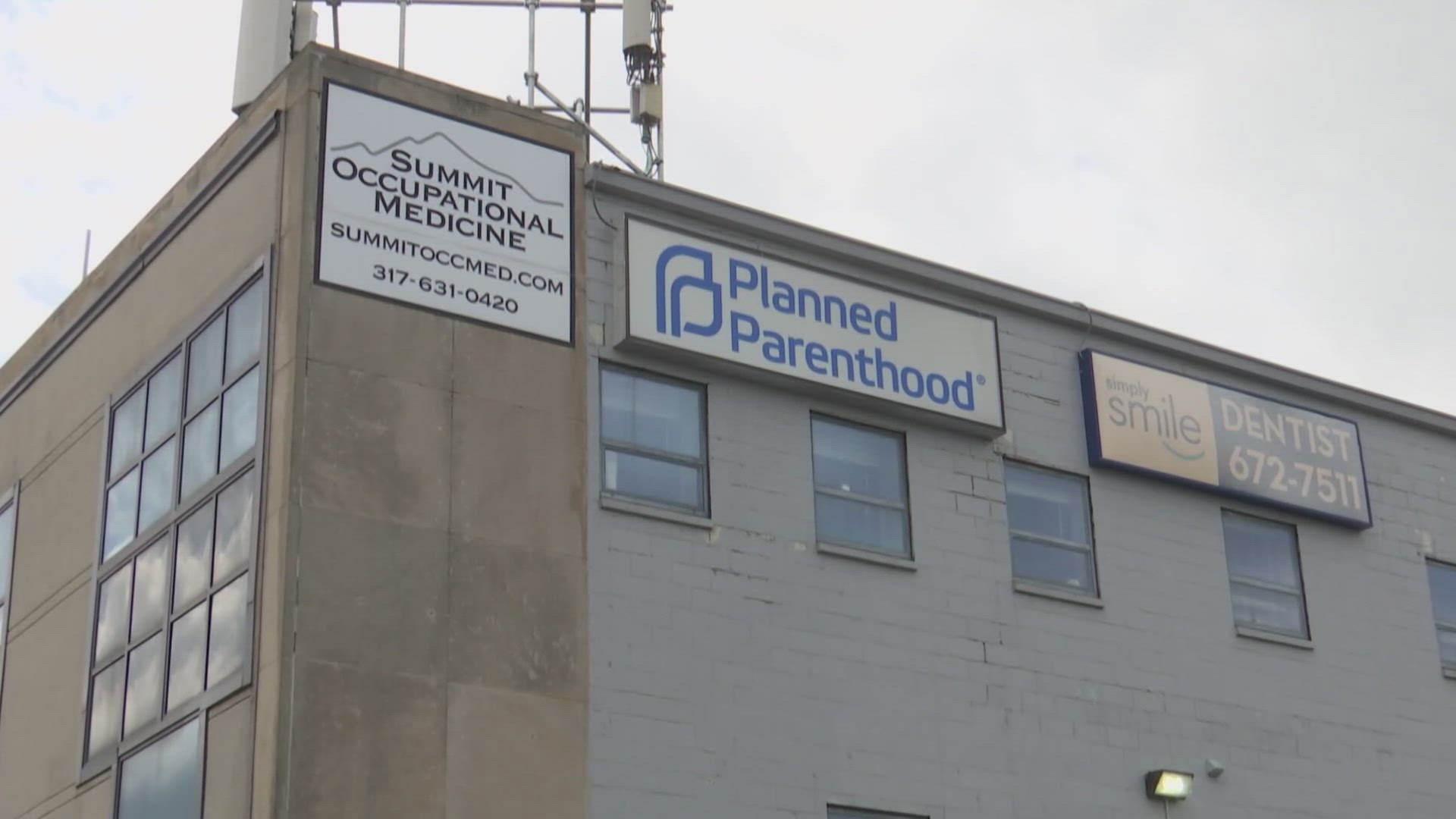INDIANAPOLIS — On Thursday, Oct. 10, the ACLU of Indiana and Planned Parenthood Great Northwest, Hawai'i, Alaska, Indiana, Kentucky and other abortion providers appealed an abortion ban ruling.
The ruling, handed down on Sept. 11, refused to expand exceptions to Indiana's near-total abortion ban. The ACLU says it wanted to "clarify the limited and ambiguous health and life exception."
The case will now move to the Indiana Court of Appeals.
“As this lawsuit proceeds, Hoosiers’ lives hang in the balance under Indiana’s near-total abortion ban. This extreme restriction is putting pregnant people’s health at serious risk, leading to preventable tragedies and even death. Hoosiers deserve better, and the Indiana Constitution demands better. We are resolute in our commitment to providing the highest quality services to our patients and clients and fighting for a future without political interference in personal health care decisions.”
Indiana became the first state to enact tighter restrictions after the U.S. Supreme Court ended federal abortion protections by overturning Roe v. Wade in June 2022. Rare exceptions to the near-total ban include when the health or life of the mother is at risk as well as in cases of rape, incest and lethal fetal anomalies in limited circumstances.
The Indiana Supreme Court upheld the state's ban in June 2023, ending a broader legal challenge brought by the same plaintiffs, but said the state’s constitution protects a women’s right to an abortion when her life or health is at risk.
Indiana’s clinics stopped providing abortions ahead of the ban officially taking effect in August 2023.
The providers said that the ban’s exceptions for protecting health are written so narrowly that in practice, many doctors won’t end a pregnancy even when a woman’s condition qualifies under the statute. The state defended the statute and said it sufficiently protects women when health complications arise in pregnancy.
In a 50-page order, the judge said providers gave hypothetical scenarios but did not identify a situation where the health and life exemption or the hospital requirement prevented a woman from obtaining an abortion.
Hanlon agreed with the state’s argument that the health and life exemption constitutionally protects pregnant patients with “serious health risks,” but acknowledged the ill-defined standard has been challenging for physicians in a “politically charged environment” and under the threat of criminal liability. However, Hanlon said physicians do not have to wait until a woman is “clinically unstable to provide care.”
She wrote that some conditions outlined by the providers can be treated with interventions other than abortion depending on the severity of the health risk, such as medication, therapy and nutritional changes. She also rejected the argument from the providers that mental health conditions constitute serious health risks.
In rejecting the providers’ request to strike the hospital requirement, Hanlon said hospitals are better equipped to handle lethal fetal anomaly, rape, incest and serious health risks.
“The evidence demonstrates that many women receiving abortion care when they are seriously ill or at risk of becoming seriously ill will likely be receiving in-hospital care irrespective of the hospital requirement,” she wrote.

